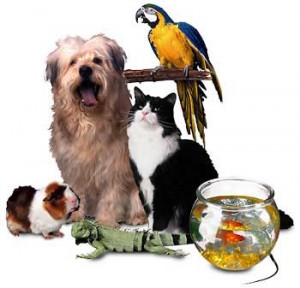by Lisa J. Lehr
If you own a small business in the Grass Valley-Nevada City area, you may already feel that your livelihood is precarious. Small business are getting shoved out by large chains, and in “this economy,” customers set aside some of their loyalty to locally-owned businesses in favor of stretching their own purchasing power.
If you own a pet-related business in this area, you may be worried about what’s happening in the local economy. But don’t give up hope! By adding an online channel to your business, you’ll be able to reach outside the local area to bring in customers (and their money) from all over the country.
America is a nation of animal lovers. We provide homes for pets in greater numbers than any other country on earth; most households in America have at least one pet, and those pets are cherished family members. And most people in the pet products and services business do what they do for the love of animals—not for the love of money.
Yet the money is there for the taking. Pets are the new status symbols; a well cared-for pet is a sign of achievement. Check out these figures from the AAHA’s 2004 (US and Canadian) Pet Owner Survey:
* 94% think their pet has human like personality traits.
* 93% would risk their own life for their pet.
* 87% include pets in their holiday celebrations.
* 84% consider themselves Mom or Dad to the pet.
* 82% think of their pets at least once a day when they’re away.
* 80% said “companionship” is the major reason for having a pet.
* 78% greet their pet at the door before they greet their spouse.
* 67% of pet-containing households recognize pet birthdays.
* 62% sign letters or cards as being from their pets as well as themselves.
* 57% would rather have a pet than a person with them if stranded on a deserted island.
* 55% have an emergency preparedness plan that includes their pet.
* 43% of pets (not including fish and snakes) share beds with their people.
* 36% say their pet enjoys watching TV.
* 33% talk to their pets on the phone or through the answering machine.
* 25% say they brush their pet’s teeth.
* 24% of dog owners sometimes dress their pets.
* 18% have attended a birthday party for someone else’s pet.
Now, as you look at this list of statistics, you may notice a theme: pet owners increasingly treat their pets like people. As the number of children per household declines, the number of pets is increasing. Baby boomers, a powerful segment of today’s market, are quickly becoming empty-nesters and replacing their grown two-legged children with four-legged ones. Indeed, many people now call themselves pet parents or guardians rather than “owners.” Thus we have a hugely profitable strategy for entrepreneurs in the pet business: position pets as members of the family. With this in mind, you can create human-like products for pets:
- · Gourmet and specialty pet foods.
- · Doggy and kitty treat cookbooks.
- · Pet clothing.
- · Human-type pet furniture.
- · Coordinating “Mommy and pet” jewelry.
- · Designer pet carriers, buggies, and strollers.
- · High-end grooming products, such as aromatherapy baths.
- · Pet birthday party supplies.
All of these can shipped to online buyers, and you can probably locate drop-shippers to streamline the process.
So if you’re a pet-business owner in Nevada County who’s struggling with the economy and the encroachment of big-box stores, you may be able to give your business a boost by offering your products to a national customer base. Get a website. Set it up to sell. Create a system to capture your site visitors, keep in touch with them, and keep them coming back.
If you don’t know how to do this, get help from someone who does.
Lisa J. Lehr is a writer and copywriter as well as animal lover living in Grass Valley. She can help you promote your business with a full range of online and offline marketing pieces. A member of Empire Toastmasters, she’s available to speak to your business or professional group. Visit her website www.justrightcopy.com for more information, opt in for a message series, and receive a free Marketing Guide.
—
Lisa J. Lehr
I write words that make you money–just ask me how.
www.justrightcopy.com
Visit my website and sign up for my fr~ee marketing tips.
New! No~cost Marketing Guide now available at my website.

